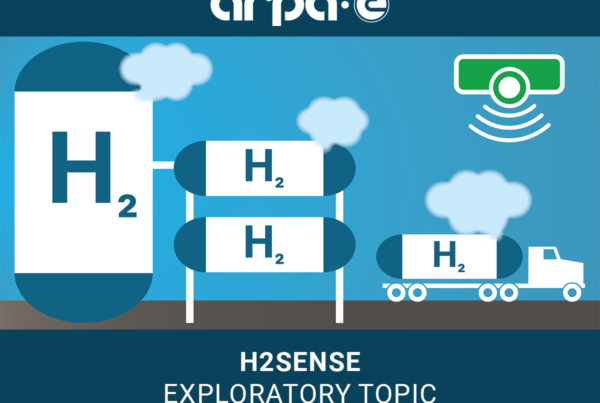
Their splitting process is assisted by solar energy and lowers the amount of the invested electrical energy needed to break the chemical bonds in the water molecule to generate hydrogen and oxygen.
One can split an atomic nucleus to produce energy, but can you also split water to create environment-friendly hydrogen fuel? Doing so currently has two drawbacks: It is both time and energy intensive.
But now, researchers at Ben-Gurion University of the Negev in Beersheba and the Technion-Israel Institute of Technology in Haifa have taken a different path. BGU environmental physicist Prof. Arik Yochelis and Technion materials science professor Avner Rothschild believe they have identified new pathways that would speed up the catalytic process they think will reduce the invested electrical energy costs significantly.
Their splitting process is assisted by solar energy, which is known scientifically by the term photoelectrochemistry, and lowers the amount of the invested electrical energy needed to break the chemical bonds in the water molecule to generate hydrogen and oxygen. Oxygen evolution – the process of generating molecular oxygen (O2) by a chemical reaction, usually from water – requires the transfer of four electrons to create one oxygen molecule and then the adding of two hydrogen molecules to make water.
Oxygen evolution from water is carried out via oxygenic photosynthesis, which involves electrolysis of water and thermal decomposition of various oxides. This biological process supports aerobic life. When relatively pure oxygen is required industrially, it is isolated by distillation of liquefied air.
According to the current model, those electrons move one after the other in a sequence of four steps on an atomic reaction site that make the chemical reaction energetically difficult.
A paradigm shift in green hydrogen fuel
However, Yochelis and Rothschild showed – both theoretically and experimentally – a new paradigm where two electrons can simultaneously be transferred at different reaction sites, reducing the energy barriers for oxygen evolution. They were originally deterred by experiments that did not fit the existing paradigm, so they set out to find a different technique.
Their findings were published in the top peer-reviewed journal in the field of sustainability, Energy & Environmental Science, under the title “Parallel water photo-oxidation reaction pathways in hematite photoanodes: implications for solar fuel production.” The study was supported by the Science and Technology Ministry and largely conducted by doctoral student Anton Tsyganok (Technion) and postdoctoral fellow Dr. Paulino Monroy-Castillero (BGU).
“Our research changes the common understanding within the scientific community about the catalytic mechanism for oxygen evolution – a central and important reaction that represents a bottleneck in producing hydrogen from water,” said Rothschild, who is a faculty member of the Technion’s materials science and engineering department.
“By combining knowledge and experience from two different fields, we showed that the catalytic reaction is more complicated than people think,” he said. “We hope this new understanding will lead to additional breakthroughs in materials development and new processes to create clean fuels from renewable resources in order to facilitate the transition to net-zero.”
Yochelis, a faculty member of BGU’s Jacob Blaustein Institutes for Desert Research in Sde Boker, said: “Over and above the scientific contribution of the research, it is important to emphasize the importance of the multidisciplinary approach and collaborations when dealing with complex systems like the energy system. Without open-minded and constructive communication between two researchers with different approaches, this would not have happened. [Such a] collaboration will always yield creative solutions to challenging problems.”
SOURCE: JP
Read the most up to date Fuel Cell and Hydrogen Industry news at FuelCellsWorks





